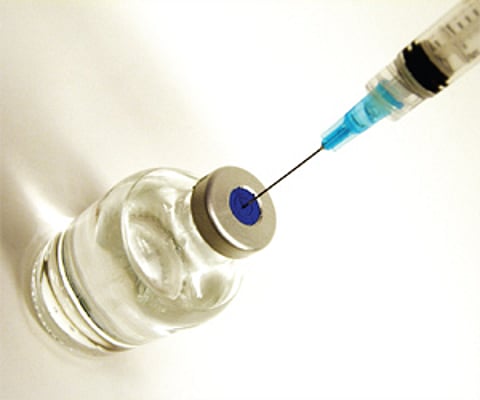

NEW DELHI: The Central Drugs Standard Control Organisation (CDSCO) has met safety, efficacy, and quality - indicators for a functional vaccine regulatory system by the World Health Organization (WHO), the government said on Friday.
The Union Health Ministry made the announcement following a comprehensive and in-depth scientific review of India’s vaccine regulatory system by a team of international experts from various countries, led by the World Health Organisation (WHO).
The drug regulator and the National Regulatory Authority of India have met the standards set up by the WHO for a functional vaccine regulatory system.
A team of international experts from various countries led by the WHO headquarters in Geneva reviewed India's vaccine regulatory system from September 16 to 20, the ministry said in a statement.
Safety, efficacy, and quality were the three basic parameters of assessment of vaccines, it said.
The WHO has established global standards and benchmarks for assurance of vaccine quality through the development of tools and guidelines, benchmarking of the National Regulatory Authorities (NRA) and pre-qualification programme of vaccines, the statement said.
The WHO NRA re-benchmarking was aimed to assess and document the status of the Indian regulatory system in the area of vaccine regulation, re-benchmark the status of the India vaccine regulatory system against the WHO NRA Global Benchmarking Tool (GBT) and measuring the maturity of the system.
India has been declared ‘functional’ against all the core regulatory functions of the WHO Global Benchmarking Tool Version VI. India’s vaccine regulatory system was benchmarked in the year 2017 against Global benchmarking tool (GBT) version V which is now revised to GBT VI with raised bars and stringency in benchmarking criteria.
India retains Maturity Level 3 with the highest marks in several functions.
Speaking about this landmark achievement, Punya Salila Srivastava, Union Health Secretary, said, “The Central Drugs Standards Control Organization, in collaboration with WHO, has made exemplary efforts towards this achievement. India is one of the main players in the pharmaceutical industry worldwide and is known for its affordable vaccines and generic medicines.”
Dr Roderico H. Ofrin, WHO Representative to India, said, “The WHO plays a pivotal role in supporting countries in strengthening their regulatory systems, and promoting equitable access to quality, safe, efficacious, and affordable medical products and health products.”
“This is indeed a great achievement, and we would like to congratulate the Ministry of Health and Family Welfare and its affiliated institutions,” he added.
Dr Rajeev Singh Raghuvanshi, Drugs Controller General (India), Central Drugs Standard Control Organization, highlighted that “India, as a large vaccine producing country, is currently supplying several vaccines to the UN agencies (UNICEF, WHO and PAHO).
“National Regulatory Authority of India meets the standards of the WHO NRA indicators (WHO Global benchmarking Tool) on functional regulatory system for vaccines” he added.
Welcoming the positive outcome of international benchmarking, Dr Alireza Khadem, WHO Team Leader for the NRA Re-benchmarking, said, “It will go a long way in re-affirming India’s role in global health, including the strength of its pharmaceutical sector and drug regulatory capacity.”
“WHO had scaled up its technical support to the India’s national regulatory authority over the past several years. This success is a culmination of intensive effort by the Health Ministry, including CDSCO, in collaboration with WHO, to implement a roadmap to strengthen capacity for regulation of vaccines.”
India is a major vaccine producer that has 36 major vaccine manufacturing facilities. These vaccines are used for the national and international market (150 countries), which makes India a major vaccine supplier across the globe.
The WHO Prequalification Programme (PQP) is aimed at facilitating access to vaccines that meet unified standards of quality, safety and efficacy as well as programme needs. It is also prerequisite for manufacturers to supply to countries through United Nations procuring agencies. A functional NRA is a criterion for WHO prequalification of vaccines